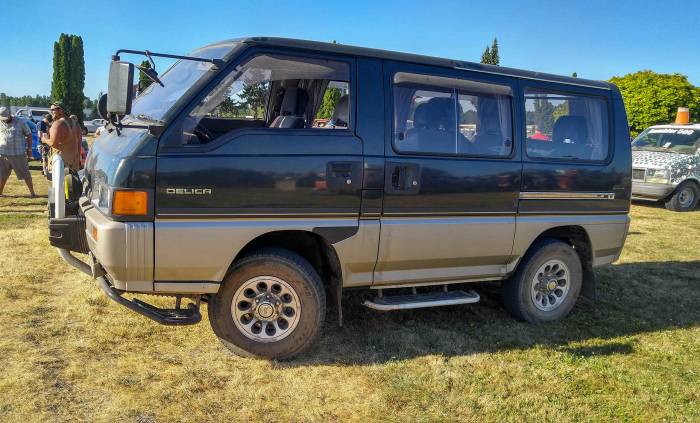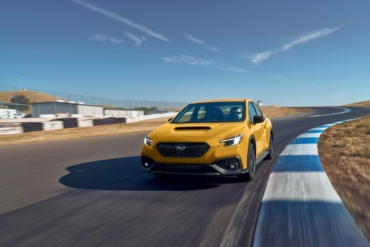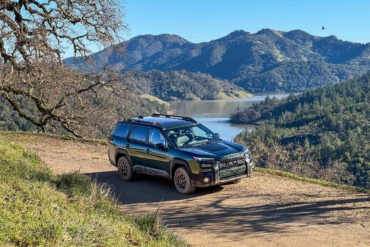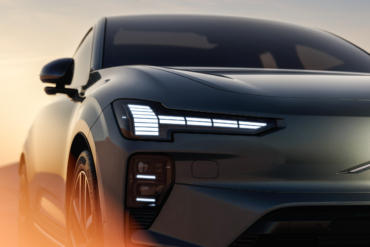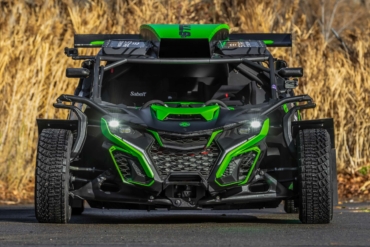Congrats! Your classic car is destined to be either a really tiny Airbnb, or the world’s largest Japanese paperweight.
Imagine waiting 25 years — a quarter-century — for something you always wanted. After years, your wait finally pays off and you take delivery of your item. In this instance, it’s a classic car from Japan. You followed the rules, did everything by the book, paid the cash, and finally got the vehicle of your dreams. You’ve got the title, and it’s registered and paid for.
Life is good.
Then one day, the state you live in sends a letter saying you can’t drive it anymore because, although it was in compliance yesterday, in 30 days it has to be pulled from the road for, well, a bunch of reasons that they recently decided upon. This is exactly what’s happening in the automotive world in Maine and Rhode Island. There’s no grandfather clause, no way to get it back on the road.
People always want what they can’t have. Maybe that’s why some auto enthusiasts have such a passion for foreign-market vehicles. However, foreign-market vehicles that are 25 years old (or older), can be imported to the U.S. So if you’d always wanted a car sold in Japan from 1996 or before that wasn’t sold in the U.S. — you can have it brought in. Turns out, that doesn’t necessarily mean you can register them.
Maine and Rhode Island are actively pulling legally registered Japanese Domestic Market (JDM) vehicles off the roads despite the federal 25-year import rule. This deregistration has the automotive enthusiast community up in arms and is making owners of other collector cars from a variety of places worried that their foreign-market rides might be yanked off the streets. So, what gives?
The 25-Year Rule
Iconic JDM cars, such as the much-worshiped Nissan Skyline sports car, the go-everywhere Mitsubishi Delica 4WD van, or high-revving perky Kei vehicles, like Suzuki Cappuccino, were never officially brought in and sold new in the U.S. market. But so long as a foreign-market vehicle (from any country, not just Japan) was manufactured at least 25 years ago or more, it can be brought in under the U.S.’s 25-year import rule.
These foreign-market vehicles are also exempt from needing to meet the United States’ safety and emissions regulations, or Federal Motor Vehicle Safety Standards (FMVSS). Well, at least until recently.
Two states, Maine and Rhode Island, are notifying owners of certain vehicles that their cars are no longer welcome on their roads — regardless of age or the 25-year rule.
Maine’s Mitsubishi Delica Deregistration
The Mitsubishi Delica is a hot topic these days. These adventure vans, usually imported from Japan, usually right-hand drive, usually equipped with a rugged 4WD system, and usually owned by dudes with beards and flannels, have gained a cult following.
Their mix of capability, versatility, and Japanese sci-fi-style quirkiness appeal to many adventurers, Japanese-market auto enthusiasts, travelers, and manga nerds alike.
In fact, I’m one of these people (no beard or manga interest, however). I owned a 1989 Mitsubishi Delica Star Wagon, and currently have a slightly newer 1994 Delica Space Gear.
But there’s been controversy around these vans that originated in an unlikely place: Maine. The Pine Tree State started sending letters to Maine-based Delica owners a few months ago saying these vehicles’ registrations would be canceled. The license plates must be sent into the state, and the vans would suddenly be for off-road use only.
Do not pass go, do not collect $200 or a lobster roll on your way out. Have a nice day!
Get Off the Road!
Here’s how the weirdness started: Back in May 2021, Maine-based Delica owners started getting letters from the Department of the Secretary of State’s Bureau of Motor Vehicles (BMV) Registration Section. They cited the cancellation pursuant to 29A MRSA 354, and further explained that “mini-trucks” couldn’t be used on Maine roads as these small trucks often didn’t meet safety or emissions standards.
Mini-trucks? Huh? And what about that 25-year import thing you just wrote about? Stick with me here …
Mini-Truck Madness
So, about that “mini-truck” verbiage: The state of Maine refers to Kei trucks/cars/vans when it says mini-trucks. Kei vehicles are small JDM vehicles that have engine size and exterior size restrictions in Japan that offer a tax break to owners.
Kei vehicles find their way to the U.S. often in the shape of tiny trucks, vans, and cars. Many of those trucks end up on farms, ranches, and sometimes just in the hands of enthusiasts.
A Mitsubishi Delica is about the size of a 2021 Toyota Sienna minivan — not even close to a Kei vehicle. A handful of Delica owners pushed back against the state. They figured this must’ve been some sort of clerical error. Or maybe the workers at the BMV simply had never seen a Kei vehicle or a Delica?
Being a Delica owner and a writer, I wanted to know more. I brought this issue up on my website, Crankshaft Culture, then reached out to Emily Cook, the spokesperson for the Maine Secretary of State about this. After a bit of back and forth, there was some admission that these shouldn’t necessarily fall in with mini-trucks.
However, she reasserted the state’s position that these vehicles (despite their non-mini-truck status) didn’t meet federal safety or emissions standards. And, in Maine, vehicles that don’t meet these standards are considered off-road vehicles. Maine doesn’t register off-road vehicles for road use. (They may have referred to the Delica as an ATV too, but whatevs.) I then broke the story on The Truth About Cars.
Maine’s Delica owners have been forced to take their vans off the road and send in their plates. Some were daily drivers. Some were weekend campervans. All are now 4,500-pound lawn ornaments.
Some owners continue to push back. At least one got a lawyer. But at this point, it doesn’t seem like anything’s going to change in Lobster Land with regards to Delicas.
And right now, it appears it’s only Delicas and rumors of ex-U.S. military Hummers that seem to be targeted. This is, of course, totally strange. More on this in a second.
Rhode Island Now Removing Kei Cars

But this isn’t just about Maine. Rhode Island is getting in on the deregistration, too. I’d heard rumblings that the Ocean State was starting to deregister all Kei cars regardless of make or model that had previously been registered for road use. On October 5, 2021, Autoblog published a story about it.
Sure enough, you’ll find similar language about safety and emissions as Maine. Am I the only one who finds it ironic that the country’s tiniest state is outlawing the tiniest cars? I think there’s a joke here somewhere.
What About That 25-Year Rule?
The 25-year rule has been on the books since the mid-1980s. Surely this federal rule has to trump a state’s registration laws, right?
The answer is no.
The 25-year import rule is a federal thing. Conversely, vehicle registration is a state’s responsibility, and those states can regulate vehicle registration how they see fit. This is why some states don’t require front license plates, while others do, for example.
Frankly, if Maine wanted to ban cars with orange paint jobs (sorry, Subaru Crosstrek owners!), they probably could. It’s their registration laws, and those looking to have a vehicle on their roads must abide by their rules.
And how do they formulate these rules? Ouija board? Magic 8 ball questions? Those folded paper chatterbox fortune teller game things you made in junior high school? No.
Enter the American Association of Motor Vehicle Administrators (AAMVA). When I asked Ms. Cook about lobbying or insurance groups Maine works with, she mentioned the state follows U.S. and AAMVA policies. So, who are they?
The AAMVA
According to its website, the American Association of Motor Vehicle Administrators is a tax-exempt, nonprofit organization developing model programs in motor vehicle administration, law enforcement, and highway safety. The organization represents the state, provincial, and territorial officials in the United States and Canada who administer and enforce motor vehicle laws.
The association also serves as a liaison with other levels of government and the private sector. Its development and research activities provide guidelines for more effective public service. AAMVA’s membership includes associations, organizations, and businesses that share an interest in the association’s goals. Again, these are mostly their words, not mine.
Safety Doublespeak?
Safety is, of course, important. But where do we draw the line on safety? Let’s get hypothetical, shall we? Is a Mitsubishi Delica Star Wagon more dangerous than a Ford Model T that can be legally registered? FYI, the Model T may have wooden wheels. There’s no way an antique Ford is going to do as well in a crash as a Delica.
PS: Model Ts weren’t crash-tested by the feds either, but can be registered as antique cars.

How about this: Is a motorcycle safer than a tiny Kei car? A Kei car has a roof, doors, and you know — four wheels — so I’d hedge my bets and say I’d rather be in an accident in a Kei car than any form of two-wheeled transportation.
In an ironic twist, did you know you don’t have to wear a motorcycle helmet in Maine if you’re over the age of 18, not under a learner’s permit, or not within one year of completing a driving test? But you know … safety!
Finally, how about this for a double standard? You can register classic vehicles like a Ford Model T with solid rubber tires, classic cars without seatbelts, or even a 778-pound BMW Isetta microcar with 13 horsepower … but not a 1990 Mitsubishi Delica that weighs 4,500 pounds and is the size of a new Chrysler Pacifica.
I don’t care if these cars were originally sold in the U.S. or not; that doesn’t make them any safer than a Delica or most Kei cars. This simply makes no sense.
How Far Do We Go With Safety?
Clearly, any car without airbags isn’t as safe as a car with them. So, why are they allowed on the road at all? Oh, because they were crash tested back in the day. But they probably don’t do so hot compared to today’s cars. I mean, have you seen this video?
Clearly, states feel there’s no need to pull the regs on a classic car — even Maine and Rhode Island. They just figure it’s your right and risk to take. So why aren’t they doing this with foreign-market vehicles like Delicas and Kei cars?
And while I don’t want to get anyone in trouble, if we’re going to do this, why is it just Delicas being targeted in Maine? What about all the other foreign-market vehicles imported under the 25-year rule? I’ve asked other owners, and they haven’t gotten any letters.
Ms. Cook did state that if they find illegally registered “off-road” vehicles, they’ll pull their registrations too. However, at the time of this writing, that hasn’t happened.
Can’t we simply let people import the cars under the 25-year rule like most places and move on to more important issues within these states? Sure, motor vehicle safety is important. But cars that fall under the 25-year rule — including tiny Kei cars — must make up a drop in the bucket of the motoring public.
Even if you add in all those classics that came before the FMVSS regulations, it must be nothing but a single grain of sand in a desert. Is this what the people in these states are asking for? Somehow I doubt it. Couldn’t these states’ resources be used in a more productive way in the interest of safety?
Emissions Omissions?
One thing I haven’t brought up is emissions. I live in a place that does emissions testing. All three of my diesel-powered over-25 JDM Mitsubishis (I have three) have never once failed the Oregon Department of Environmental Quality’s (DEQ) emissions testing in the Portland metro.
Sure, many places don’t have testing. So couldn’t there be a requirement that gas version have a catalytic converter or something tangible like this?

Of Precedents and Slippery Slopes
Maine and Rhode Island are setting precedents that could affect the rest of the country. As the owner of three JDM vehicles, and as an automotive enthusiast, that pains me. What’s to stop other states from doing this and turning this into a slippery slope? Or is this just a states’ rights thing, and it is what it is?
One thing that might stop other states is resources. Oregon, for example, doesn’t have a visual inspection like Maine. It’s likely the state won’t spend the money to do so, nor would it find it cost-effective to weed out a few hundred vehicles. Perhaps these precedents will stay out east and remain an issue in states that do have visual inspections.
There are many states that already don’t allow Kei cars to be registered, so not without precedent to prohibit these vehicles. But pulling one’s registration after it was legally registered is a different animal.
The active deregistration of someone’s car — something they likely paid thousands upon thousands of dollars for — just seems wrong. Why can’t they simply be grandfathered in, and then strike forth a date decreeing that in the Year of Our Lord, 2021, no more horseless carriages without FMVSS certificates shall be allowed to register on the king’s roads?
Looking at this without my enthusiast glasses on, I could see how this could simply be looked at as an insignificant issue that upsets a vocal minority of car dorks. And maybe it is.
However, it seems wrong that a state can simply decide one day that your legally registered, legally imported, and legally paid-for vehicle can now suddenly not be driven on the road. No grandfather clause, no refunds, and no exceptions. To that I say — no, thanks.

